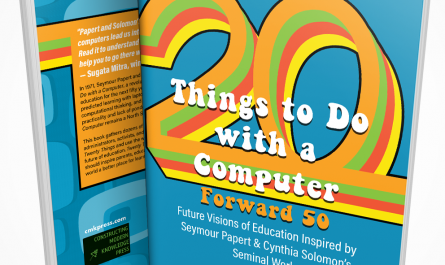The first step in improving Science, Technology, Engineering and Mathematics (S.T.E.M.) in our classrooms is to find evidence of its existence.
S.T.E.M. currently suffers from the Sasquatch Syndrome. People have heard of S.T.E.M. just like they have heard of Bigfoot, but they’ve never actually seen either.
Two years ago, I taught Masters level Elementary Math and Science methods courses. One night, I asked the class of preservice teachers currently student teaching what I thought was an innocent question. I asked, “Tell me about how science is approached in your school?” The students looked around nervously for a moment and then shared observations like the following:
- We are supposed to do science after testing season.
- The science teacher is on maternity leave.
- Nobody knows where the key to the science materials is.
- Our school is focusing on numeracy and literacy.
- Science is supposed to happen on Mondays, but we have had a lot of holidays.
You get the idea…
Not a single student teacher working in several dozen Southern California elementary schools could cite a single incident of science being taught. Forget about engineering or computer science.
After all, it’s not like little kids are curious or enjoy exploring the world around them. You couldn’t possibly teach reading or language arts in a scientific context, right?
Veteran educator Gary Stager, Ph.D. is the author of Twenty Things to Do with a Computer – Forward 50, co-author of Invent To Learn — Making, Tinkering, and Engineering in the Classroom, publisher at Constructing Modern Knowledge Press, and the founder of the Constructing Modern Knowledge summer institute. He led professional development in the world’s first 1:1 laptop schools thirty years ago and designed one of the oldest online graduate school programs. Gary is also the curator of The Seymour Papert archives at DailyPapert.com. Learn more about Gary here.


Actually we have spent the last 2 years training all 4-6 teachers in the use of Discovery Education, Glogster, and other Web 2.0 tools plus collaborative unit building strategies, science sentence stems for ELD, etc. in order to have all 4-6 teachers teaching science content through language arts standards. With the adoption of common core and reading informational text vs. literature as the focus we are doubling-down on the ability to teach science (almost) daily.
I can find lots of examples of science being taught at my school but it is in British Columbia, and we have a person who’s role it is to improve science education… which is sorely lacking in most schools.
Of course, you should ask a follow-up question: “What is science?” The answers can sometimes be somewhat shocking.
Jeremy,
That sounds… exhausting. Nowhere in your list of trainings did you mention teachers learning how to actually do science, or more importantly to allow their students to do science. If students (with teacher support, encouragement, and participation) are not asking questions about the world around them and learning the skills needed to answer their own questions, then science is not being learned. Discovery Ed videos are nice to leave for subs, and 4-6 students will become better readers when science (and social studies!) content is part of their reading program, but humans only learn science when they actually do science. Otherwise, they are just memorizing and recalling facts.
Teaching science *content* is totally the wrong direction. Science is about *process*. Projects and experiments with an uncertain outcome.